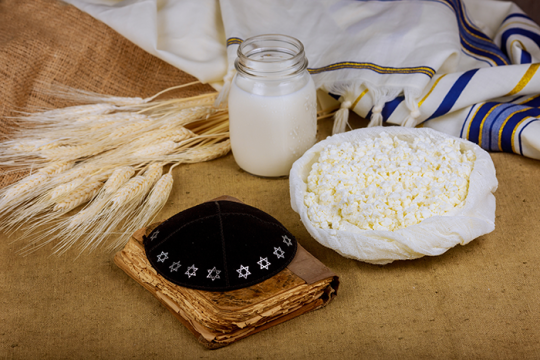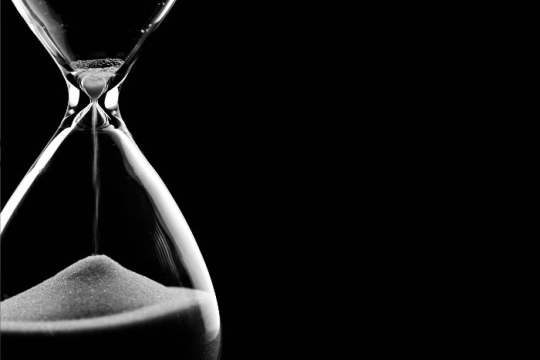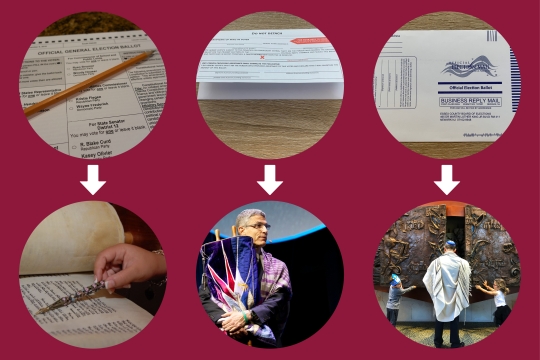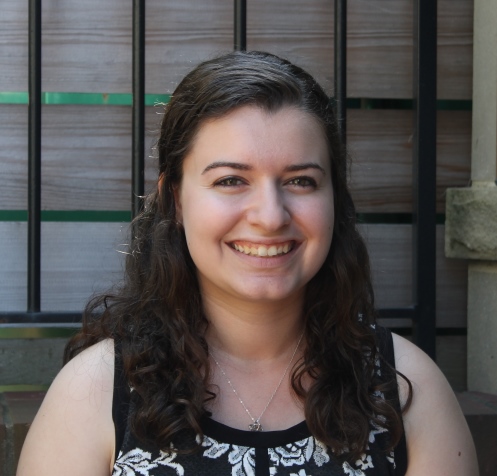
On Monday, at the conclusion of Sukkot, Jews around the world celebrated Simchat Torah. Simchat Torah, or “Rejoicing with the Torah,” is a celebration of the conclusion of our cycle of Torah reading, during which we read the final verses of the last book of the Torah, Deuteronomy, and immediately begin the first book, Genesis with the story of creation.
This celebration of ending one cycle of Torah reading and beginning a new one is the perfect coda to this long holiday season, which has at its center themes of renewal. On Rosh HaShanah, we reflect on the new year and the shortcomings and joys of the year past; on Yom Kippur, we atone for our sins; on Sukkot we commemorate the journey in the desert and begin z’man simchateinu, the time of our joy; and then, on Shemini Atzeret and Simchat Torah, as we have one more opportunity to celebrate our closeness to God in this time of year, by beginning anew our reading of the Torah.
The act of restarting our reading of the Torah is also a reminder of our constant need to study all that it has to offer, including the teachings surrounding social justice. It also reminds us that our work to repair the world is never complete.
As we participated in a celebration of the book and education of the Jewish people, it is important to think about the learning that we do in other aspects of our lives. Public education is a cornerstone of our society, yet it has been plagued by underfunding, which hurts children and their futures.
Nearly 90% of American children attend public schools, and sadly many of these schools are overcrowded, rundown, and teachers are underpaid and overworked. According to a publication by the Children’s Defense Fund, the United States ranks 24th among 30 developed countries on overall educational achievement for 15 year-olds, and every nine seconds during the school year, a public high school student drops out.
In his 2001 URJ Biennial Sermon, Rabbi Eric Yoffie described public schools as “the last bastion of democracy,” saying: “The public schools were the ladder that we used to climb from poverty to affluence in American life and how dare we deny them to others….The public schools take the poor and the handicapped, the abused and the foster children, the Christian and the Muslim, the Roman Catholic and the Jew. They do more of God’s work in a day than most institutions do in a lifetime.” At this same Biennial, the URJ reaffirmed its support of public education by passing this resolution.
As we move out of this holiday season and forward into the new year, we must hold onto the reflection, renewal and joy inherent in this holiday season. With this in mind, we can also reflect on the importance of learning (both Jewish and secular), and what we can do in our society to ensure that all children have access to a high-quality, secular public education.
To learn more about this issue, visit the RAC’s page on education and the Children’s Defense Fund.
Related Posts

Favorite Jewish Teachings from Leaders of Color

What Jewish Wisdom Can Teach Us about Waiting for Election Results


